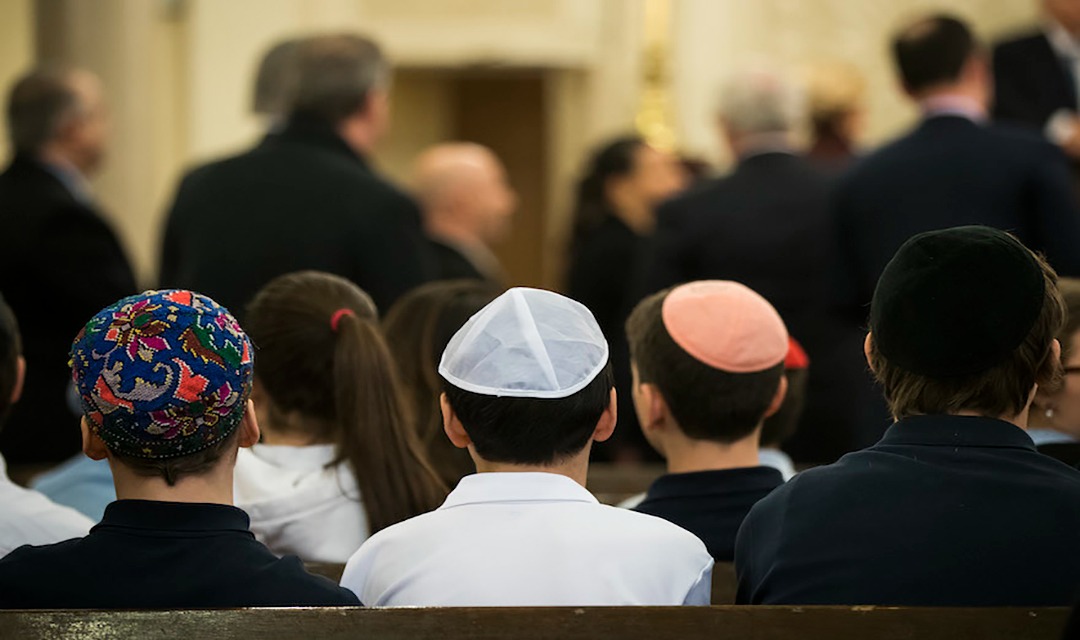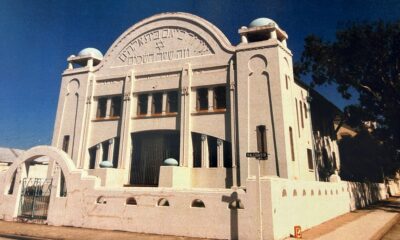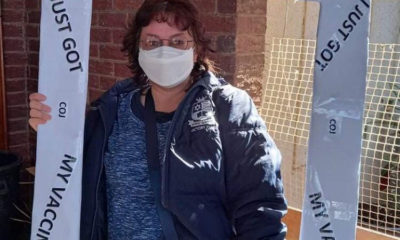
Featured Item

Spot checks, sign-ins, sanitising, and social distancing – shuls get stricter
Chief Rabbi Dr Warren Goldstein is calling on the South African Jewish community to go back to shul as COVID-19 protocols are in place, and shuls need the community and vice versa.
“Now, as we prepare to welcome in the year 5782, is the time to renew our shuls as active players, not spectators, and partners, not consumers. The community needs the shuls,” he wrote in his Rosh Hashanah message.
His message is echoed by Professor Efraim Kramer, a leading international expert in emergency medicine with a specialty in mass gatherings, and a member of the community’s medical advisory team. “Shuls are a safe place to be, and they are therapeutic psychologically, spiritually, and socially,” Kramer says.
In South Africa, COVID-19 regulations require shuls to implement social distancing, sanitise the hands of all attendees, and only allow entry to those wearing face masks. The limit on attendees per venue is 50 indoors and 100 outdoors. In addition, religious services must be concluded by 21:00.
According to Kramer, there are no other precautions applicable to shuls. If a campus has multiple structures, it can run several “venues” on campus. This would increase the total number who could attend services.
An eight-hour direct flight away, Israel has recently reinstated the tav hayarok (green pass), applicable to synagogues with more than 50 attendees. A green pass grants access to venues or events to those carrying documentation showing that they are vaccinated.
“Attendees should have either been vaccinated, have current negative test results, or have recovery certificates issued by kupat cholim [health and medical service providers],” says Jeremy Rosenstein, the chairperson of the McDonald International Shul in Netanya.
More than 2 000km from there, Hungary currently has no restrictive provision for interiors, so no masks are required. “Believers are free to decide whether or not to wear masks in synagogue,” says Robert Deutsch, the president of the Hungarian Orthodox Jewish community. “If the weather permits, they will keep the side entrances to their synagogues open for ventilation.”
Travelling north-west through Austria, Germany encourages virtual facilities for those whose age or previous illnesses places them in a high-risk group for COVID-19 infection. As per the regulations developed by the Central Council of Jews in Germany, each person must be separated by at least 1.5m during prayers. All objects in the synagogues should be disinfected regularly, and worshippers should have their own siddur and Chumash.
Journeying past the Netherlands and the North Sea, the United Kingdom has some rules specific to Rosh Hashanah. According to Mark Frazer from the office of the chief rabbi of the United Hebrew Congregations of the Commonwealth, guidelines state that the baal tokea (shofar blower) must have taken a lateral flow test and received a negative test on erev yom tov. Moreover, all attendees should take a lateral flow test on erev yom tov, and children’s services should be held in a separate building apart from the main shul.
Across the North Atlantic, the Canadian province of Ontario is in what its regulations refer to as “step three” due to 70% to 80% of adults being vaccinated with one dose and 25% vaccinated with two doses. The guiding principle of this step is to expand access to indoor settings, with precautions, including where there are larger numbers of people and face coverings can’t always be worn. According to Ontario official regulations, the capacity of indoor and outdoor religious gatherings is limited to permit physical distancing of 2m. Synagogues must post signs at all entrances so that individuals can screen themselves for COVID-19 before they enter.
Wayfaring south, the rapid spread of the Delta variant throughout the United States has thrown a spanner in the works for shuls. For many synagogues, the assumption until just a few weeks ago was that vaccines had made it safe to come back together in person. Now, preregistration, social distancing, and a live streaming option will be the norm. B’nai Israel Congregation, a modern Orthodox synagogue in Maryland, will be shifting services outside, eliminating the sermon, singing, and other traditional elements.
In Indianapolis, congregation Beth-El Zedeck is enabling social distancing by allowing each member to choose three in-person services over the course of Rosh Hashanah and Yom Kippur. Except for the clergy, all bimah traffic will be eliminated. The cantor will be the sole Torah reader, and in-person aliyot will be recited from a stand at the base of the bimah. Shofar blowing will be abbreviated and muffled by a face mask.
B’nai Jeshurun, a non-affiliated synagogue in Manhattan, isn’t allowing unvaccinated children to attend indoor services due to the risk of the Delta variant for children. All family and early childhood services will be outdoors and live-streamed. In the event of rain, these will be held virtually.
At Temple Shir Shalom in Michigan, the family service will be held at a local football field.
Ikar, a synagogue in Los Angeles, will offer tickets to members, who will be guaranteed a ticket to only one in-person service on Rosh Hashanah or Yom Kippur. For those who feel more comfortable gathering indoors in small groups, Ikar will encourage “watch parties” at private homes, where smaller groups of vaccinated members can gather to watch the live stream of services.
There is no uniform practice among congregations in Illinois, even though the community says it has the utmost concern for pikuach nefesh (saving a life). “Some congregations are hosting services virtually, some outdoors in-person, some indoors in-person, and some via a hybrid,” says Linda Haase, the senior associate vice-president marketing communications at the Jewish United Fund of Chicago.
In Illinois’ Congregation Beth Shalom, a conservative synagogue, the customary four-hour Rosh Hashanah and five-hour Yom Kippur morning services will be held in two consecutive two-hour shifts. Given the time constraints, Torah processions will be eliminated, and the sermon will be briefer.
Moving further south, synagogues in Mexico will generally have a percentage of attendees between 30% and 50%. According to Comité Central de la Comunidad Judía de México, people must register to attend a synagogue. The country has Orthodox and conservative (Masorti) synagogues. The latter won’t have attendees as they have decided to transmit services online.
On the other side of the Pacific, the Australian cities of Sydney and Melbourne are in lockdown. Therefore, no shul services will be taking place. If the lockdown is lifted, some of the likely precautions would be checking in via a QR code or mandatory sign in, a COVID-19 marshal on site, and spot checks and audits taking place on some shuls.








